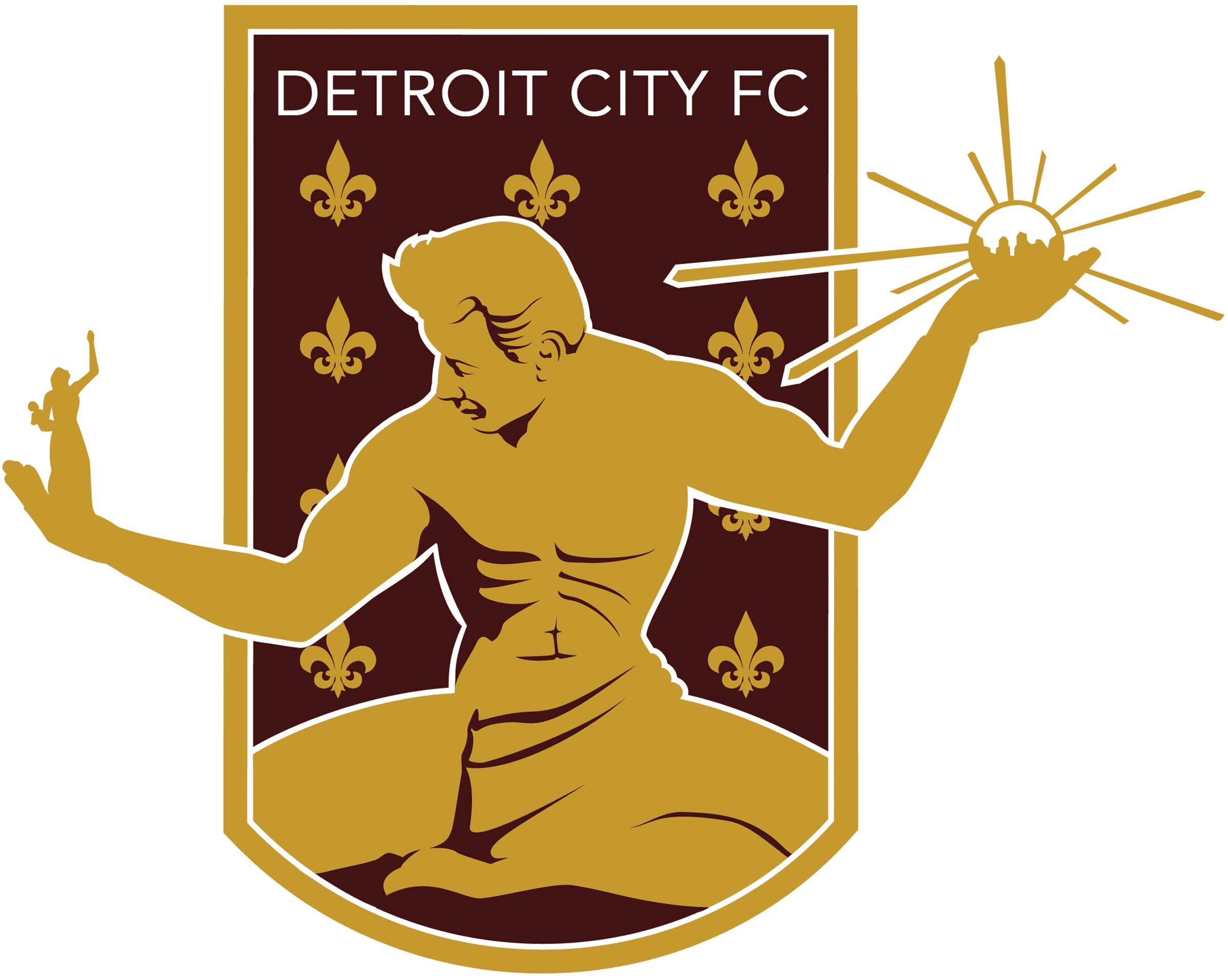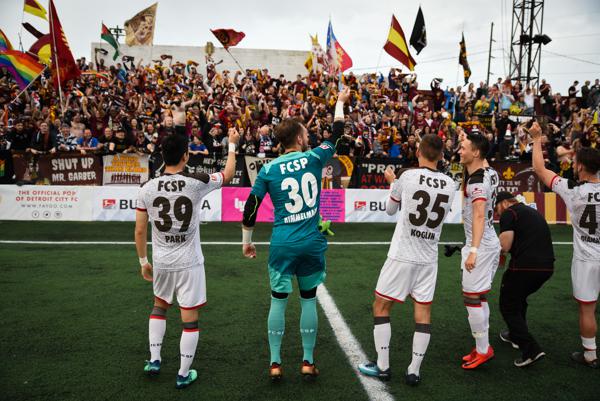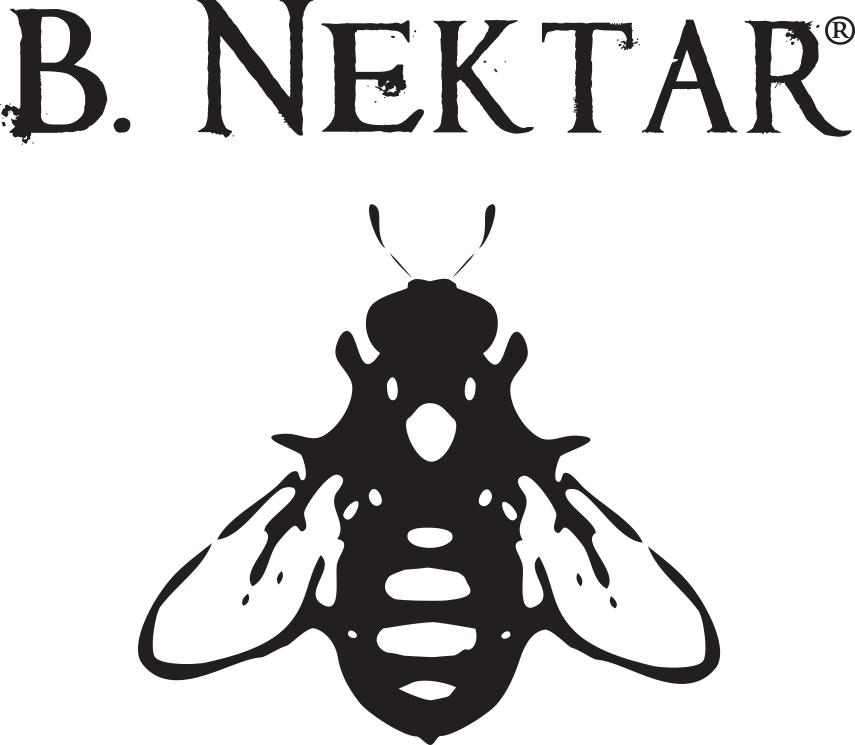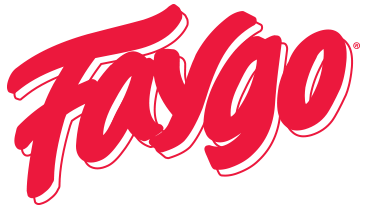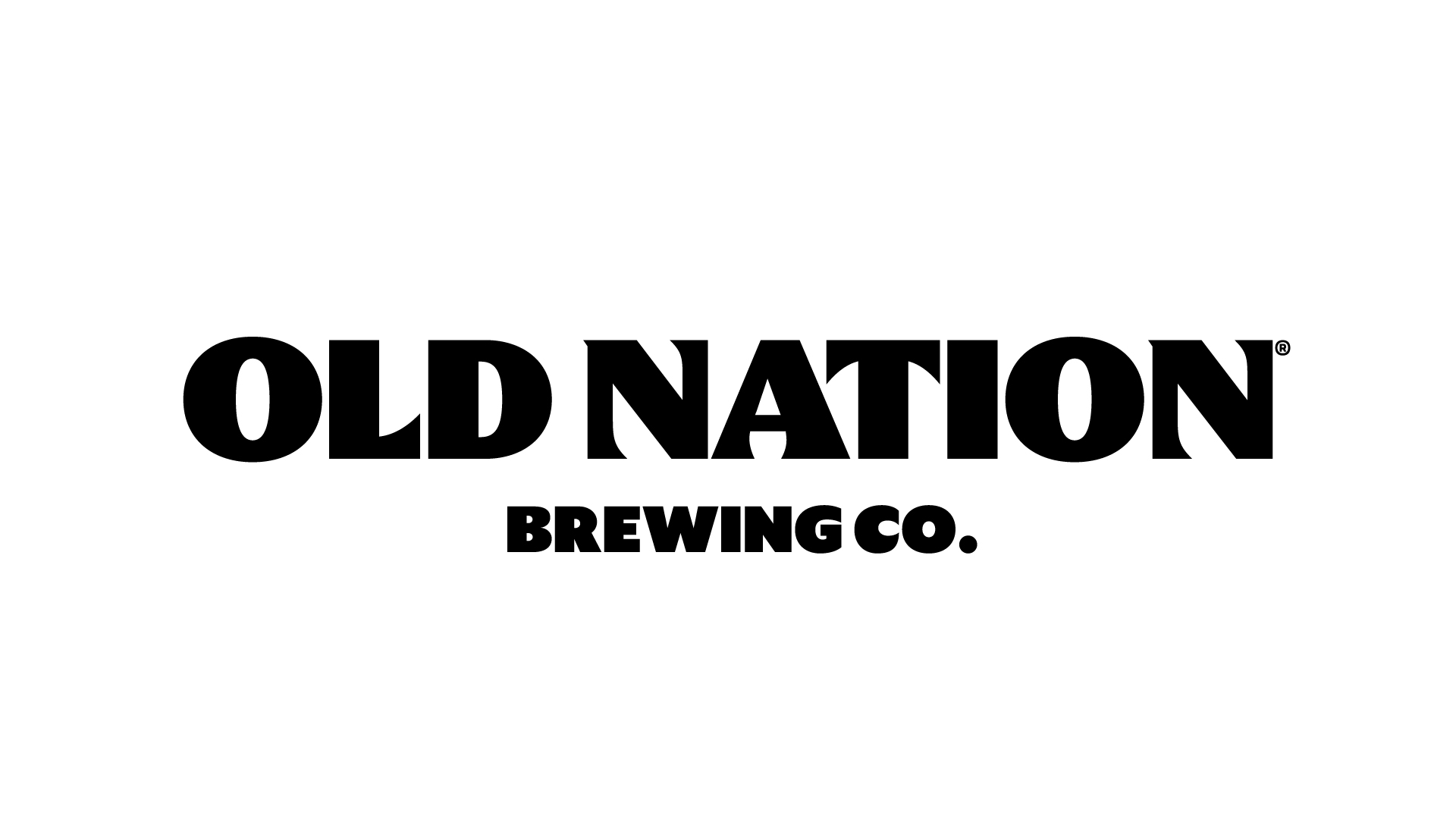It’s natural to be nervous when hosting anyone at all, but when your very coolest, very distant relative suddenly hits you up for a weekend on the town? At your place?
He’s a real-life blue check mark, a Guy Who People Will Be Talking About when he hits the club, which he’s been known to do with some vigor. He’s part of the reason you’re doing what you’re doing – he is a leader in your field. And he’s just amazingly cool, warm and funny and angry about all the right things. “Show me the sights, take me out to some spots, and we’ll do a little business … “ the video message says (in this imagined, metaphorical reality, in which he is Fussball Club St. Pauli, and you are Detroit City FC), his barely-inflected English going on to suggest a schedule.
It’s hard not to focus on the details in the corner of the screen. He looks to be calling from a dimly-lit bar; in the background, an outward-facing ‘Sankt Pauli’ skull-and-crossbones neon is occluded by backing framework. You’re smiling and wondering how your smile looks; you’re pretty sure it’s oscillating between ‘maniac’ and ‘imbecile,’ but you can’t tell which is which, or stop the oscillation. Fortunately, he’s showing no sign of noticing. Or is he just that polite, that next-level, that he’s just taking the maniacal imbecility of your expression in stride? The call’s over before you can process any of it.
This is an honor. This is a privilege. This is a low-flying panic attack. There is a very modern terror in these lopsided relationships in the era of social media – the terror of being a cipher, of knowing so many little things about someone who is just meeting you. They’re in 3D; you’re not – not yet, at least. It will happen quickly when it happens, and there’s no unbiting that apple, is there? He’s coming. You’re gonna show him around. It’s either gonna go well, or it’s not.
Imagination can be your emotional enemy; it is so incredibly simple to conjure nightmare scenarios, and so easy to believe them in this darkened time, when many of our worst fears are rampant upon the earth, and many more worse than we imagined besides. It could be something commonplace, like ‘what if he hates the hotel,’ or something more complex, like ‘what if he clearly finds me repellent but feels obligated to go through with everything, awkwardly, while looking through me.’ Both are credible, because, well, look around.
And then he shows up, and all that anxiety just vanishes, because it clicks more perfectly than you dared imagine – you’re clearly sympatico on a lot of levels, you’ve got similar family stories, and you’re passionate about the same things. When he departs after two whirlwind days, he’s no longer a blue check mark, and you’re no longer a cipher – you’re brothers-from-other-mothers, regretfully parting, making plans for your next escapade.
That’s what this weekend in Detroit with FC St. Pauli was like. For supporters, for players, for staff, for the bigwigs and the sponsors – for everyone in both communities – the weekend Detroit City FC hosted FC St. Pauli will remain a touchstone, a warm memory in harder days. We really, truly are all in this together. There’s nothing virtual or tenuous about it. We are community clubs, invested in making things better for the people in those communities. We understand that project to be a long one, and we expect to prevail. We want no further gods and respect no masters. We are comrades-in-arms against the prevailing ethos of modern football.
—-
It’s sometime between noon and 1 p.m. on Saturday, and a small crowd is gathered in Amnesia, a chic party space in the MotorCity Casino Hotel. It’s the first event of gameday, a panel talk arranged to discuss community football clubs. One side of the room is wall of towering windows, allowing a view of the Cass Corridor, including the lumpy, narrow high-school gridiron where City began its existence. Leaning forward to get within range of one of the shared microphones, Detroit City FC co-owner and CEO Sean Mann intones, “American sports business is rotten at its core,” and no-one blinks.
How could we? The ongoing power and dysfunction of the overlapping cartels claiming control over sports in America has become so obvious as to no longer seem controversial: The NCAA and its shamateurism. The NFL and the trail of broken lives from CTE damage, domestic violence, PEDs and opioid abuse. USA Gymnastics, Michigan State and Larry Nasser, with a victim list in the 100s and remorse only for their lost power. MLS ‘building communities’ until whoops, sorry, Columbus, we hyped you as cradle of the game but your billionaire has other ideas. All of them share a similar cold-eyed detachment, a hawkish, predatory approach that seeks to leverage unearned advantages, make them seem permanent, inevitable. The results are uniformly cruel.
As FC St. Pauli President Oke Gottlich sees it, the dysfunction comes from disconnecting professional sports from the communities which support them. “The problem is they’re missing the chance to make it a volkssport, to really grow the communities,” Gottlich said. The concept of volkssport – literally, ‘sport of the people’ – includes sports that anyone can participate in, at any stage of life; usually it is understood to include walking, hiking, biking, swimming and the like. Americans associate most types of volkssport with summer camp, activities adopted because of their essentially universal benefits and general capacity for provoking joy.
To that list, Gottlich would add football – if it is run in the community-oriented style exemplified by Detroit City and St. Pauli. “This sport is for all people, all genders, all types – but also all income levels,” he said. “Without the community, nothing matters.”
FCSP technical director Ewald Lienen put it more starkly: “People need a home, a community where you can feel at home, with the ideas, with the organization, you can identify with it. That’s what happened at St Pauli.
“The social life is decreasing everywhere. You don’t see people coming together. Football becomes a business. We see where people come together, support each other, then also the football is better. It’s how ideas about the game really spread.”
All of which leaves us, their American comrades, Detroit City FC, walking into an absolutely blistering headwind in the soccer environment in the USA. The MLS shop is a closed one, run for the benefit of NFL lords and resource barons, and applications are simply not available to five thousandaires with big dreams, no matter the club’s Q rating or social-media reach or community footprint of good works. Contemplating top-flight football in the USA at the moment would require both a pocket billionaire, and the surrender of every bit of social, moral and intellectual property the club has built up; what would shamble on would not be Detroit City FC, but a branded product crafted in its living image by its murderers.
Gruesome as that possibility seems, it’s hardly the only scenario. “This is the way football has always been organized, around community clubs,” explained Dr. Stefan Szymanski. “The corporate version is the interloper.”
“We support this club because they created a club worth supporting,” Northern Guard capo Jackie Carline said; implicit in that statement is the idea that a club not worth supporting might not continue to attract support. But it’s not as simple as class warfare, of course; when we say football is for all, we should mean it; through that crack, we come to final evolution of thought on the matter of the best form of ownership for a community football team – it depends on the community.
Throw the seeds down everywhere you go; let them grow as they may. Let a thousand clubs bloom; we shall judge them by their works. Gottlich: “It’s the people running the club. It could be that an oligarch is running a club that is devoted to its community, that’s not popular to say, but it could be. And if a club set up like St Pauli, if the board is shit and we’re not playing good football, the model won’t save it.”
There’s no magical structure that guarantees healthy, vibrant football clubs that enrich the lives of their supporters. As Lienen said, “You can’t direct these things. St. Pauli is directed by its members. You can’t make things different than they really are.” Which is great news for City and its supporters; how could we be other than we are?
At halftime of Saturday’s match, Leinen – a St. Pauli legend, a guy who’s managed all over Europe, and whose comments at the panel discussion carefully skirted whether Detroit City was the type of club he was describing when he described FCSP – was won over entirely. Pointing across the bubble soccer bouncing along on the Keyworth pitch to the other side of the stadium, where the 4,000-plus people filling the Northern Guard sections were moving about erratically, pursuing their halftime routines in a bouyant mood, Leinen was emphatic: “The thing I see is that these people understand that being the supporter of a club is not only supporting the football club, but also being part of a family, being part of a community.
“Look around there – Refugees Welcome, you see?
“Everything they did to welcome us?
“This is something special. This is something very important.”
—-
We’ve talked all business so far. Mostly. I have a confession to make: While the prospect of the visit was a bit intimidating, and the alignment of philosophies and ideologies was remarkable, and the ideas exchanged were both deep and fruitful, I’ve been writing about them first and putting off writing everything else, which was the best part of the weekend, just to draw out my personal anticipation, sort of rolling it around in my mouth and savoring it, because “everything they did to welcome us,” as Ewald put it, was a Detroit weekend to remember, an extended joy-ride up a dopamine rainbow. If I was writing this in German, I’d know a word that means friends-in-waiting, and I’d use it to describe everyone I met. Time there was measured by the flights of bumblebees and stars.
St. Pauli arrived in Detroit from the nation’s capital Thursday night, where they seemed a bit surprised to be greeted by not only the far-flung supporter diaspora of the first Kult club, but also a smattering of Northern Guard Supporters. Friday morning brought a brief tour of some of the highlights of this city that looms so large over the cultural landscape – Hitsville, U.S.A., where the immense reach of Motown never fails to astonish, the Spirit of Detroit, which they recognize a bit from the badge in a moment of revelation, and the odd neighborhood between everything, not part of the tour but of course still implicit, where they start to see why we fly the skull and crossbones – Detroit, cradle of Detroit City FC.
This whirlwind tour complete, it’s down to managing a steadily-advancing intermingling of these two tribes of crazies, the Brown and the Rouge, arms open to each other and the world. There was this steady progression of the mood over the weekend as the groups got to know each other and realize just how absolutely in-tune they really were.
Friday afternoon: Third Man Records, Jack White’s very cool Ultimate Merch Shop. Picture small groups of similarly-clad folks sipping drinks, each group sprinkled with a member of the opposite group. Mood: Cautious. “I believe we may be fellow-travelers in this community soccer business. Of course we will sell you merch. Could I offer you a lager, as well? Those are free.”
Friday early-mid evening: Detroit City Distillery. Now it’s starting to come together, players and supporters and leadership from both teams swapping stories. Mood: Feelin’ it! “I also agree with EVERYTHING HE SAID. (he is a genius, you know). This drink is delicious. We should have more of them. Lemme get those.”
Friday, late evening: Rise Against concert at St. Andrew’s Hall. Mood: PIRATE COMRADES, LET US RAGE.
Then it all started over, on a much larger scale, on Saturday morning. First was the aforementioned panel discussion, which served the overarching purpose of putting the most-ardent supporters in direct contact with each other, then starting the conversation in a deep, meaningful way. And cocktails.
The real mass gathering began in the mid-afternoon in and around the Fowling Warehouse, which several out-of-towners tried for the first time. The DadVan, a semi-underground Northern Guard pregame staple on the side-street near Fowling, suddenly went into wide distribution, ballooning into a massive street party that snowed food and rained drinks. Multiple groups of St. Pauli supporters came in from all over North America as well as Hamburg, mingling with both City supporters and unaffiliated supporters just curious to see what the whole thing is about. The size of the gathering dwarfed every previous prematch festival; longtime Northern Guard members kept bumping into each other and exchanging that “can you believe this?” look that accompanies success unlooked-for.
The march was enormous, but the Northern Guard didn’t sound that much louder than usual – until they were standing shoulder-to-shoulder on the concrete steps of Keyworth, increasingly packed as kickoff approached, making themselves at home, making sure it’s a home for everyone. The concussive blast of “COME AND GET IT” had the St. Pauli support grinning, knowing their singing was almost completely inaudible against this demonstration of group will, not minding a bit, just basking in it the way a cat basks in a shaft of sunlight, singing all the while. My god, they get it.
Then the game. The weather threatened to be horrible, but that clearly kept no one away, and at the last minute the storms simply veered off to the north. The result indicates the heights to which community soccer in Detroit can still aspire. But the result was hardly the point – the teams did their thing, they expressed themselves, we expressed our love for them and each other, the purest form of this joyous thing, football, a friendly, a game just for the delight of it. Our boys were resolute and promising. Theirs were at times astonishing. It’s hard to imagine feeling better after a 6-2 loss. The full house that filtered out into the streets of Hamtramck was energized, kinetic.
The descending action took place at the Magic Stick, a night club on Woodward Avenue of some note. The teams had rented out the upper level, and supporters of every stripe – owners to players to the hard-core to new fans and everyone in between – sprawled out over the dance floor, filling the mingling spaces, lounging around the tables for social interactions of every intensity with this, their family, old and new, these people who share this love. It had the bittersweet of a long goodbye; the laughs that rang over the dance floor during the kickaround – which took place in front of a performer who imitated both Wayne Newton and Elvis Presley – had that shrieky edge, that sense that it was coming just a bit too hard in anticipation of certain sadness. We found new family, then they had to go back to their lives, and we won’t see them for a while. But it’s a tiny sadness, hiding inside the immense joy that was this weekend.
Fussball Club Sankt Pauli, thank you. In a world of nightmare-scenarios-come-true, we present a shining counterpoint: If we stick together, if we’re smart and passionate and unafraid, we can make things better for everyone around us. We shall live to see these days renewed. We will find a way. Detroit City FC will keep the light burning for community football, and we will hope to see you soon.






















































































































































































































































































